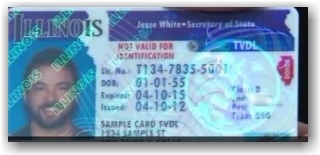Posts Tagged ‘Immigration News’
Wednesday, February 12th, 2014

Last October, CA was the 10th state to sign into law driver’s “permits” for undocumented immigrants. In response to an email concerning this topic and whether this would be an acceptable List B document for I-9 purposes, the OSC posted a Technical Assistance letter response a few days ago on its website.
It has been my understanding that the permits will contain language that states that they are not to be used for “federal official purposes,” and will contain a notice on the card that reads: “This license is issued only as a license to drive a motor vehicle. It does not establish eligibility for employment, voter registration, or public benefits. ”
The matter, however, is timely addressed and is a reminder to examine driver’s licenses more closely and read the fine print on the front and back. Here’s a link to the letter that was posted on Feb. 7th. You’ll see it posted under the heading “Fiscal Year 2014.”
Also, here’s an article with an example of the card being used in Illinois stating “not valid for identification” indicated very clearly at the top of the card.
If any of our readers more recently have run across one of these cards presented during the I-9 process, please share with us.
Tags: CA passes law to issue Driver's Licenses to Undocumented, DACA, Deferred Action, DMV, Driver's License for Undocumented, I-9 Employment Eligibility, I-9/E-Verify News, Immigration News, Legal Workforce, List B Document
Posted in Comprehensive Immigration Reform, Employer Compliance, I-9/E-Verify News, Immigration Legislation, OSC, USCIS | Comments Off on Will Driver’s Licenses for the Undocumented be Acceptable for I-9 Purposes?
Wednesday, January 15th, 2014
 There are certain classes of non-profit employers who are exempt from the H-1B cap. The exemption from the cap only applies to institutions of higher education, non-profit research institutions, government research institutions, and non-profits formally affiliated with an exempt educational institution. Let’s discuss this.
There are certain classes of non-profit employers who are exempt from the H-1B cap. The exemption from the cap only applies to institutions of higher education, non-profit research institutions, government research institutions, and non-profits formally affiliated with an exempt educational institution. Let’s discuss this.
Institutions of higher education: Under the definition, an institution of higher education is one which:
- admits students who have completed secondary education;
- is licensed to provide education beyond secondary school;
- provides educational programs for which the institutions award bachelors’ degrees or provide programs of not less than 2 years that are acceptable for full credit toward bachelors’ degrees;
- is a public or nonprofit institution; and
- is accredited or has been granted pre-accreditation status by a recognized accrediting agency.
What does it mean to be related or affiliated to a higher education institution nonprofit entity?
The USCIS states that it is sufficient that a nonprofit entity is related or affiliated to an institution of higher education through shared ownership, control or be somehow affiliated to the higher education institution as a member, branch or subsidiary.
This narrow definition makes the types of non-profits that qualify for this exemption few and far between. For instance, non-profit service, community, policy and arts organizations would not qualify for the exemption from the H-1B cap. Unless the non-profit employer is primarily devoted to research, or is formally affiliated with a university, it will not qualify as a cap-exempt H1B petitioner. Public secondary schools do not qualify for H1B cap-exemption unless they have a formal affiliation agreement with a college or university. However, the exemption does cover certain professionals employed by a for-profit entity but but does when working at an exempt location, as long as the work continues to serve the core mission of the exempt institution, such as a physicians’ practice group affiliated with and located at a university teaching hospital.
Nonprofit Research Organizations | Government Research Organizations: Nonprofit research organizations or governmental research organizations, are defined in 8 CFR 214.2(h)(19)(iii)(C), as follows:
- A nonprofit research organization is an organization that is primarily engaged in basic research and/or applied research.
- A governmental research organization is a United States Government entity whose primary mission is the performance or promotion of basic research and/or applied research.
Basic research is general research to gain more comprehensive knowledge or understanding of the subject under study, without specific applications in mind. Basic research is also research that advances scientific knowledge, but does not have specific immediate commercial objectives although it may be in fields of present or potential commercial interest. It may include research and investigation in the sciences, social sciences, or humanities.
Applied research is research to gain knowledge or understanding to determine the means by which a specific, recognized need may be met. Applied research includes investigations oriented to discovering new scientific knowledge that has specific commercial objectives with respect to products, processes, or services. It may include research and investigation in the sciences, social sciences, or humanities.
Conclusion
It should be noted that all of the criteria above must be met in order for an institution or an organization to qualify for a cap-exempt status for H-1B purposes. Such institutions and organizations can indicate that their H1B filing is cap exempt by marking Form I-129 (Petition of Non-Immigrant Worker) with a “yes” answer to questions 1, 2, or 3 in Part C of the H1B Data Collection and Filing Fee Exemption Supplement. Bear in mind that an employer or a foreign national who wishes to seek H-1B status under a cap-exempt petition must verify that they qualify for the cap exemption under one of the three categories above. It is recommended that you work with an immigration practitioner that understands this casework as the analysis is often complex. If you’d like to become a client of our office, please contact us at info@immigrationcompliancegroup.com or call 562 612-3996.
Tags: Department Of Homeland Security (DHS), DOL, H-1B Exempt Employers, H-1B NonProfits, H-1B Professionals, H-1B Visas, Immigration News, Labor Condition Application, LCA, Specialty Occupation, USCIS
Posted in Department Of Homeland Security (DHS), Department Of Labor (DOL), H-1B Visas, Immigration News, USCIS | Comments Off on Who are H-1B Exempt Employers?
Thursday, January 9th, 2014
The Los Angeles Times reported that Boehner’s leadership team was drafting “principles” for overhauling immigration laws that will be presented in coming weeks. His remarks were made Wednesday (Jan. 8, 2013) during the first private meeting of House Republicans in the new year.
“We are working on a standards or principles document,” Boehner said, according to a person in the room granted anonymity to discuss the private session. The document is being drafted by Boehner, his leadership team, including House Majority Leader Rep. Eric Cantor (R-Va.) and House Judiciary Committee Chairman Bob Goodlatte (R-Va.), as well as other members interested in the issue.
House Republican leaders believe that the GOP needs to support an immigration overhaul to woo Latino voters in advance of the 2016 presidential election – if that’s even possible with the rampant obstructionism that has plagued the House. In any event, we all sit waiting to hear about this step-by-step approach that he’s been talking about for months.
The small team of GOP members and staff has been working to draft a statement of basic principles on immigration policy for several weeks. The effort is being coordinated by Rebecca Tallent, former immigration advisor to Arizona Sen. John McCain and a veteran of the previous effort to pass immigration reform during the second term of President George W. Bush. Boehner hired Tallent in December.
It was reported that the goal is to present the document — which could serve as an outline for future legislative action — before the House GOP retreat at a resort on the Eastern Shore of Maryland on Jan. 29th.
It is likely that Boehner will wait until the filings for Republican primaries are past before things really get moving in order to protect Republican incumbents from having to vote on immigration bills that could be used against them by far right candidates.
We will continue to keep you posted.
For more reading: LA Times, Washington Post
Tags: Comprehensive Immigration Reform, Congress, GOP Immigration Principles, Immigration Legislation, Immigration News, Immigration Reform, Speaker Boehner
Posted in Comprehensive Immigration Reform, Congress, Immigration Legislation, Immigration News | Comments Off on GOP Speaker Boehner Says They’re Ready to Write Principles for Immigration Overhaul
Sunday, January 5th, 2014
 DHS/ICE continues to issue Notices of Intent to Fine (NOFs) at an unprecedented rate for Form I-9 related infractions. Mistakes occur in the I-9 process, it’s inevitable. While establishing a written compliance policy, training and careful prevention is the best approach. All employers should take time at the beginning of each year to conduct an internal audit and self-examination of their systems, operating procedures, and past and present practices for handling I-9s, as well as to access training needs for the employees charged with handling and supervising the I-9 process. We also recommend that you review your E-Verify submissions, as well as revisiting just how compliant your I-9 software really is with your vendor if you are using an electronic system.
DHS/ICE continues to issue Notices of Intent to Fine (NOFs) at an unprecedented rate for Form I-9 related infractions. Mistakes occur in the I-9 process, it’s inevitable. While establishing a written compliance policy, training and careful prevention is the best approach. All employers should take time at the beginning of each year to conduct an internal audit and self-examination of their systems, operating procedures, and past and present practices for handling I-9s, as well as to access training needs for the employees charged with handling and supervising the I-9 process. We also recommend that you review your E-Verify submissions, as well as revisiting just how compliant your I-9 software really is with your vendor if you are using an electronic system.
While there are many checklists and do-it-yourself guides and webinars available on the Internet and elsewhere, consulting a licensed attorney or specialist in the field who is familiar with I-9 and E-Verify compliance issues can save employers hours of research, provide a solution tailored to your organization, and save you thousands of dollars in fines and penalties should ICE knock on your door.
When ICE notifies an employer of their intention to perform an audit, it opens the door for an onslaught of inquiries and investigation from other government agencies that range from SSA mis-match issues to Department of Labor (DOL) wage and hour, USCIS, IRS, and more if you have areas of incompliance in your operating procedures. This is not the time during an audit when under pressure to clean up compliance problems.
New employers are often more at risk because many are not even aware of the I-9 requirement, and probably are also unaware of the need for all employees to complete the I-9 Form. Some are aware, but they lack knowledge concerning the regulations that govern the form; such as, timeframes, acceptable documents, form retention, and other important details that are integral to the process. Particularly, there are problems with industries such as IT consulting, healthcare, staffing agencies, and other organizations with multiple locations in regard to completing the I-9-Form remotely with the employer’s designated agent and employee in different locations.
These are just a few reasons why we urge you to assess the strengths and weaknesses of your present compliance program, and start the New Year fresh with a renewed commitment to implement best practices that will provide the foundation upon which you can develop and maintain a more compliant business and workforce.
You might be interested in joining our LinkedIn group, I-9/E-Verify: Smart Solutions for Employers,” and signing up to receive via RSS feed or email our Blog posts.
Tags: +, Department Of Homeland Security (DHS), DOL, E-Verify, I-9 AUDIT, I-9 Best Practices, I-9 Comipliance, I-9 Form, I-9 Training, I-9/E-Verify News, ICE, Immigration News, Legal Workforce, OSC, SSA
Posted in Department Of Homeland Security (DHS), Department Of Labor (DOL), Employer Compliance, Healthcare, I-9/E-Verify News, ICE, Immigration News, OSC, Social Security, Staffing Agencies, USCIS | Comments Off on Compliance Audits are Recommended for Employers at the Beginning of the New Year
Friday, January 3rd, 2014

The H-1B visa category is one of the most used visa classifications by US employers and is available to professionals that will work in a specialty occupation that generally requires a minimum of a bachelor’s degree or its equivalent.
Last year, the number of H-1B visa petitions filed in the first 5 days exceeded the entire H-1B visa allotment. Hundreds of employers were unable to hire all the foreign-based professional talent that they required, and their petitions went into a lottery pool, left to chance and uncertainty.
Given that we are seeing improvements in the economy, it is anticipated that this filing season will be the most competitive one in many years. Just to review…There is a limit of 85,000 H-1B visas available each fiscal year, 20,000 of which are reserved for individuals who have graduated with an advanced degree (a master’s or higher degree) from a US college or university that is accredited by a nationally recognized accrediting agency or association. Pre-accreditation status is also acceptable. Secondly, the school must be a public or other nonprofit institution. If these requirements are not met, the candidate will not qualify for the master’s degree exemption. It is also to be noted that employers stand a stronger chance obtaining advanced degree petition approvals, even if the position being offered only requires a bachelor’s degree or its equivalent.
Our position is that it’s just not too early to start assessing where you’d like to add personnel and to start working with your immigration provider on such important matters as:
1) Credential evaluations for prospective employees with foreign degrees
2) Thorough job descriptions indicating the percentage of time spent on core areas of the position
3) Needed updates to your corporate stats and profile information
4) Updating intake questionnaires for H-1B employees
5) For new employers who have previously not filed H-1Bs and are not in the databases accessed by government agencies, be prepared for a request to submit to the Department of Labor iCERT system for Labor Condition Applications (LCA) a copy of your IRS letter confirming your EIN number. It is also not unusual for them to request your corporate formation documents before they will certify your LCA. H-1B petitions will be denied if not accompanied by a certified Labor Condition Application. It might be advisable to file your LCA’s in late January or February even though this will shorten a few months from the 3-year initial approval.
If the prospective employee is a national of Canada, Mexico, Australia, Singapore or Chile you have other options to consider. Canadian and Mexican professionals qualify for TN status (pursuant to Trade NAFTA). You can file anytime of the year under this classification; there are no quotas, applicants can apply right at the border, and the 3-year period of stay can be extended indefinitely. Here is a link to the list of occupations that qualify for TN classification.
Australian nationals are eligible for E-3 status in 2-year increments and can consular process their applications, with unlimited extensions available. A Labor Condition Application is required for these cases. Nationals from Singapore and Chile qualify according to Free Trade Agreements for the H-1B1 classification. There is a quota for this category that has never been reached.
If you are contemplating the hire of a professional who currently holds H-1B status with another employer, they are exempt from the quota and can start working for you immediately even though the petition is pending approval.
We encourage employers to call us with any questions that you might have or if you’d like to retain our firm to handle your H-1B filings. Our email: info@immigrationcompliancegroup.com or by phone 562 612.3996.
Tags: 2015 H-1B Filing Season, CBP, Consular Processing, DOL, E-3 Visas, Employment Visas, H-1B Cap, H-1B Visa, H-1B1 Visas, Immigration News, Labor Condition Application, Nonimmigrant Visas, Specialty Occuations, tn, USCIS
Posted in Canada, Customs & Border Protection(CBP), Department Of Labor (DOL), H-1B Visas, Immigration News, TNs, US Consulates, USCIS | Comments Off on It’s Beginning to Look A lot like H-1B Filing Season 2015!
Wednesday, December 18th, 2013
 Back in October of this year, President Obama stated “Immigration reform may not pass, but that’s no reason to give up the fight.”
Back in October of this year, President Obama stated “Immigration reform may not pass, but that’s no reason to give up the fight.”
The pro-immigration reform movement has united in a strong front and is the most broad and diverse that we’ve ever observed. The strategic and impassioned outcry from immigration activists are being heard in the hallways of Congress, in state offices across the country, groups fasting for immigration reform, holding prayer vigils, outbursts taking place in the middle of President Obama’s speeches, protestors chaining themselves to gates of federal buildings, and more – a full court press on the GOP. “The immigration reform movement has emerged as a relentless force that is prepared to hold all parties accountable in 2014,” states Julia Preston in her NY Times article.
The Background
In June 2013, the Senate passed their version of Comprehensive Immigration that doesn’t please everyone, but its passage was a victory for those who have been working on the issue for years and watched immigration reform fail many times over. It addresses undocumented immigrants, legal immigration, border security, employer hiring and an entry-exit system so the government knows if foreign nationals leave the country when their visa expires. The path to citizenship is long — 13 years or more — and arduous, but advocates are pleased that it would exist at all, given opposition from many Republicans and the failure of bills to carve out such a path in the past. Dreamers, young undocumented immigrants who came to the U.S. as children, would be able to earn green cards in five years, as would some agricultural workers. The bill adds huge increases in border security that catered to unsure Democrats and Republicans.
Although 3 out of 4 Americans want Congress to pass immigration reform with a path to citizenship, Speaker John Boehner and the House Republican Leadership are using stalling tactics and excuses to block reform from getting a vote on the House floor. There’s been no progress – total gridlock in the House of Representatives, while we’re told repeatedly that they are approaching CIR in a piecemeal manner and that all the individual bills will eventually be rolled into one comprehensive bill. The president recently commented, “If they want to chop that thing up into five pieces, as long as all five pieces get done, I don’t care what it looks like.” We ask, when will his happen? Sadly, not this year.
The question is will the Tea Party continue to set the agenda for the House GOP? Mounting frustration with the Tea Party may lead mainstream Republicans to move forward on immigration reform without them. In order for the GOP to win Hispanic and Asian voters, it is mandatory that they address the broken immigration system. There has been little to no (and at times incredibly awkward, contradictory and antagonistic) outreach and messaging to the immigrant community by the Republican Party. At this point in time, there is fear that if 11 million are granted citizenship, they’ll vote Democratic. We will have to see how this continues to play out moving into 2014.
Recently, On December 3, 2013, Speaker John Boehner announced the hiring of Rebecca Tallent to serve as immigration advisor in his office. Tallent worked as a staffer and later as Chief of Staff for Sen. John McCain. She left McCain’s office earlier this year to become the immigration policy director for the Bipartisan Policy Center where she also chaired the organization’s immigration task force. She’s helped draft amnesty bills for Sen. McCain in the mid-2000s and, in her role at the Bipartisan Policy Center, helped develop an immigration framework that includes amnesty for illegal aliens and massive increases in legal immigration. Her new appointment in Speaker Boehner’s office does send a positive signal that he’s laying the ground work to pass massive immigration reforms in 2014. However, NumbersUSA President Roy Beck said. “His new hire has done almost nothing the last decade except work for giant increases in foreign labor. But Boehner still has to persuade at least 118 Republican House Members that their constituents would be okay with an expansion of immigration. We are hopeful that the appointment of Rebecca Tallent will play an essential role in lifting immigration reform over the finish line in early 2014.
More reading…
Video: “Congress Fails to Tackle Immigration Reform”
Immigration Reform Advocates Descent on Capitol HIll; visiting 200 Offices
Other Articles on Immigration Reform
Tags: Comprehensive Immigration Reform, Congress, Department Of Homeland Security (DHS), House Republicans, Immigration Activists, Immigration News, Immigration Protestors, Immigration Rallies, Immigration Reform, Immigratoin Reform News, John Boehner, Senate Immigration Bill, Tea Party, USCIS
Posted in Comprehensive Immigration Reform, Congress, Customs & Border Protection(CBP), Department Of Homeland Security (DHS), Immigration Legislation, Immigration News | Comments Off on Immigration Reform – Will it Cross the Finish Line in 2014?
Friday, November 29th, 2013
 On December 8, 2013 E-Verify will release new and revised Memorandums of Understanding (MOUs) that are tailored to each access method.
On December 8, 2013 E-Verify will release new and revised Memorandums of Understanding (MOUs) that are tailored to each access method.
The changes were made in response to customer feedback and to update the MOUs with policy and process changes. Users will find that the new versions have more plain language and are easier to understand, with new titles that clearly identify the access method to which the MOU applies, and bullets that have been changed to letters and numbers to make searching and citation easier. Also, the lengthy sections have been broken up.
Please take the time to review and become familiar with the new MOU’s that apply to your access method; refer to the Fact Sheet and the preview of the new MOUs here. You can also access this information under “View Essential Resources” by logging into E-Verify to review the new and revised MOUs.
What you need to know
- Current E-Verify users will not be required to execute a new MOU, but are bound by any and all enhancements to the E-Verify program including the new or revised MOUs that apply to their access method. Current users should become familiar with the new or revised MOU that applies to them. The effective date of the MOU for existing users is January 8, 2014.
- The E-Verify enrollment process has not changed. New Users will review and execute the new or revised version of the MOU that applies to their access method during enrollment. The effective date of the MOU for new users is December 8, 2013.
- The new and revised MOUs include several updated provisions such as enhanced privacy protections and instructions for reporting privacy and security breaches.
Revised Memorandums of Understanding
TeleConferences
Two teleconferences will be hosted by USCIS to introduce and discuss the revisions schedule as follows:
1) For General Audience: December 11(Wed.) 2:30 – 3:30 EST. Will discuss the revisions made to the existing MOU’s and will open up for Questions. Register here
2) For E-Verify Users: December 12 (Thurs.), 2:30 – 3:30 EST. USCIS officials will provide an overview of the three new MOUs for Web service participants, and be available to answer questions. Register here
If you have any questions regarding the registration process, or if you have not received confirmation email within two business days, please email us at Public.Engagement@uscis.dhs.gov.
Tags: Department Of Homeland Security (DHS), E-Verify, E-Verify MOU, Employment Eligibility Verification, I-9 Form, I-9/E-Verify News, I-9/E-Verify News, ICE, Immigration News, Legal Workforce, SSA, USCIS
Posted in Employer Compliance, I-9/E-Verify News, ICE, Immigration News, Social Security, USCIS | Comments Off on E-Verify Update —–New/Revised MOU’s Released
Monday, November 11th, 2013

While DHS/ICE continues to issue Notices of Intent to Fine (NOFs) at an unprecedented rate for Form I-9 related infractions, this is yet another reminder that you can choose to pay the fine or you can contest the fine and file for a hearing (within 30 days of receipt of the NOF) before an Administrative Law Judge (ALJ) who handles cases related to employer sanctions, document fraud and unfair immigration-related employment practices. OCAHO has more than proven that they are willing to reassess and lower fees in just about every case in recent months.
Note that many employer sanctions cases never proceed to the hearing stage because either the parties reach a settlement with the approval of the ALJ, or the ALJ resolves a case through a prehearing ruling.
We recommend that your first step in the process be to retain experienced representation that specializes in the practice area of employer compliance to guide you step by step through the process – don’t attempt to go this alone. The next step is to understand the process that has been summarized very efficiently in the recent Fact Sheet that we refer to here
Should you have any questions or wish to become a client of our office, please contact us or refer to our services & solutions page.
Tags: ALJ I-9 Hearing, Department Of Homeland Security (DHS), Document Fraud, DOL, Employer Sanctions, I-9 Fees, I-9 Form, I-9/E-Verify News, ICE Audit, ICE Investigation, Immigration News, IRCA, Legal Workforce, Notice of Intent to Fine, OCAHO, OSC, SSA
Posted in DOJ, Employer Compliance, Federal Contractors, I-9/E-Verify News, ICE, Immigration News, OSC, Social Security | Comments Off on How to Contest an I-9 Notice of Intent to Fine (NOF)
Thursday, October 24th, 2013
 We have written many articles over the years on what happens when ICE serves an employer with a Notice of Inspection (NOI); see below for links to our articles and resources. Today, ICE released a new Fact Sheet that referrences the IRCA law in the 1st paragraph, and then summarizes the order in which an ICE administrative inspection proceeds, the types of notices that are issued following an I-9 ICE audit, how fines are determined based upon knowingly hiring and continuing to employ violations, to substantive and uncorrected techical violations, and how these fines and penalties are calculated.
We have written many articles over the years on what happens when ICE serves an employer with a Notice of Inspection (NOI); see below for links to our articles and resources. Today, ICE released a new Fact Sheet that referrences the IRCA law in the 1st paragraph, and then summarizes the order in which an ICE administrative inspection proceeds, the types of notices that are issued following an I-9 ICE audit, how fines are determined based upon knowingly hiring and continuing to employ violations, to substantive and uncorrected techical violations, and how these fines and penalties are calculated.
The penalties for ignoring the legal requirements of the I-9 process can be quite severe, even in cases of unintentional omissions and uncorrected I-9 mistakes. Civil penalties for such errors may range from $110 to $1,100 for each effected employee. A business with thousands of employees and multiple worksites may face a significant financial burden in noncompliance penalties. The fines may be further increased if ICE determines that an employer knowingly hired unauthorized foreign nationals, and can range from $375 to $16,000 per violation with repeat offenders on the high end. Employers and their representatives convicted of having engaged in a pattern or practice of knowingly hiring unauthorized foreign nationals, may also face criminal charges and fines of up to $3,000 per employee and/or six months’ imprisonment. Other federal criminal statues may provide higher penalties in certain fraud cases.
Employers and individuals who commit citizenship status or national origin discrimination may be ordered to pay civil fines and attorneys’ fees. The penalties range from $375 to $3,200 for the first offense for each individual discriminated against; from $3,200 to $6,500 for the second offense; and for subsequent offenses, not less than $4,300 and not more than $16,000 for each person effected.
The trend toward increased scrutiny of immigration employment practices will likely continue in the foreseeable future. With immigration reform still uncertain, ICE continues to step up enforcement activities with a deluge of NOI’s to employers every few months. These recent developments have made it even more critical that employers maintain a strong immigration compliance profile. Employers can no longer afford to think that because they don’t hire foreign nationals, they don’t have any I-9 issues or need to comply with I-9 immigration regulations.
The key to I-9 compliance for most organizations starts with a thorough self-examination of existing paper I-9’s, E-Verify submissions (if applicable), standard operating procedures, and past practices. While there are many checklists and do-it-yourself guides, free webinars and Podcasts available on the Internet and elsewhere, consulting an experienced immigration consultant or attorney in the practice area can save employers hours of research, provide a solution tailored to your organization and save you thousands of dollars in fines and penalties.
You should strongly consider an independent I-9 audit if…
- You’ve had a turnover in the HR position(s) charged with the responsibility of handling and processing I-9 Forms
- None of the staff charged with the I-9 process has been formally trained
- You already know that you have I-9 document violations, errors and unintentional mistakes
- You have recently gone through a corporate reorganization, merger or acquisition
- You know you have an on-boarding process that is complex, such as multiple jobsite locations where the I-9 process takes place
- When you haven’t documented your I-9 Form policies and procedures in a policy statement or procedures manual
- If you have a large volume of foreign worker I-9 forms
- If you do not have a calendar system for re-verification or terminated employee retention
- If you do not have a centralized I-9 recordkeeping process
- If you are photocopying documents presented during the I-9 process for some and not for others
- You participate in government contracts and have been asked to perform an I-9 audit
- You have not performed a random or full audit within the last year by either an internal individual who is familiar with I-9 compliance rules but does not deal with I-9s on a regular basis, or by a reputable independent I-9 auditor.
- You’ve never performed a self-audit or had any outside provider perform an I-9 audit
- You do not know how to make corrections to the I-9 form
- You’ve received SSA No Match Letters
- Your industry is being targeted by ICE
- You’re unaware that a new I-9 form was released and do not have a process in place for staying current with regulations and procedures
Immigration Compliance Group regularly represents clients from all industries to develop effective I-9 policies and compliance programs. By establishing and maintaining effective corporate policies and procedures, many of the above-mentioned warning signs can be addressed proactively in an audit before the government does one for you.
New ICE Fact Sheet
I-9Audit.com – Our Employer Resource Center Articles
Tags: Department Of Homeland Security (DHS), I-9 AUDIT, I-9 Compliance, I-9 News, I-9 Training, I-9/E-Verify, I-9/E-Verify News, ICE, ICE Audit, ICE Fines, ICE Inspection Fact Sheet, ICE Penalties, Immigration News, Legal Workforce, NOI, Notice of Inspection, OSC, SSA
Posted in Department Of Homeland Security (DHS), Employer Compliance, Federal Contractors, I-9/E-Verify News, ICE, Immigration News, OSC, Social Security | Comments Off on ICE Releases New Fact Sheet on the I-9 Inspection Process
Thursday, October 10th, 2013

On June 15, 2012, President Obama signed a memo calling for deferred action for certain undocumented young people who came to the U.S. as children and have pursued education or military service here. Applications under the program which is called Deferred Action for Childhood Arrivals (“DACA”) began on August 15, 2012. Individuals that meet particular criteria, are awarded employment authorization (a/k/a an “EAD Card”) by USCIS.
USCIS does not alert employers when EAD cards have been issued to existing employees, and the employee is under no obligation to present the document to the employer. However, should they do so, the employer is obligated to examine the document.
The Attached Fact Sheet identifies the employer’s obligations during the Form I-9 process and provides specific guidance to employers on the treatment of EADs issued by USCIS to DACA recipients, whether they be current employees who come forward on their own, or new hires.
Note that DACA guidance does not direct employers to perform E-Verify queries on current employees who present DACA work authorization. Rather, it states that employers should complete a new Form I-9 and perform an E-Verify query in certain situations involving material changes to identity information. More on this topic can be found in the new M-274 Handbook on pages 23-24.
Should you like to become a client of our office or have particular questions pertaining to this topic, please feel free to contact us.
Tags: DACA, DACA EAD Cards, DACA Fact Sheet, DOL, E-Verify, EAD Employment Authorization, I-9 AUDIT, I-9 Form, I-9 Reverification, I-9 Training, I-9/E-Verify News, ICE, Immigration News, Legal Workforce, M-274, OSC, SSA, USCIS
Posted in DACA | DAPA, Department Of Homeland Security (DHS), Department Of Labor (DOL), Employer Compliance, I-9/E-Verify News, ICE, Immigration News, OSC, Social Security | Comments Off on Form I-9 Processing for DACA Recipients








